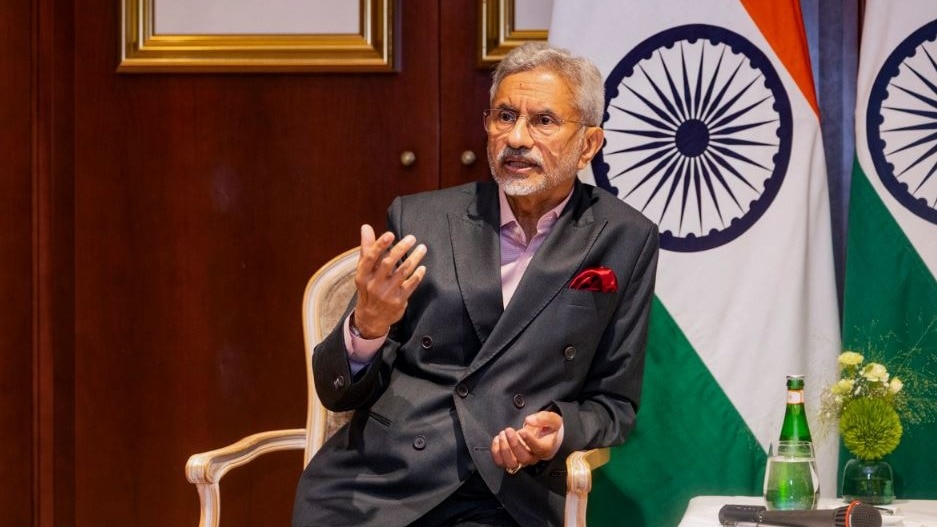India’s Jaishankar Labels Pakistan ‘Terroristan’ in Stark Warning on Global Terrorism Threats
On June 10, 2025, India’s External Affairs Minister S. Jaishankar, during an official visit to Brussels, made a bold statement, referring to Pakistan as “Terroristan.” This comment came amid escalating tensions between India and Pakistan, particularly following a fatal terror attack in Pahalgam that claimed 26 lives in April. Jaishankar’s remarks emphasize the urgency for a global zero-tolerance stance against terrorism and nuclear threats.
Context of the Tensions
The recent escalation in hostilities can be traced back to the Pahalgam terror attack, prompting India to respond with military precision. Following this tragic event, India launched Operation Sindoor, targeting terror infrastructure across Pakistan and Pakistan-occupied Kashmir. These military actions were a direct retaliatory move aimed at diminishing the capabilities of groups that have long threatened India’s security.
Jaishankar, while addressing a joint press conference with the EU’s High Representative for Foreign Affairs, Kaja Kallas, highlighted that the conflict should not be viewed as a simple territorial dispute between two nations. Instead, he stated, “This is actually a response to the threat and practice of terrorism.” His approach rests on the premise that the challenges India faces stem primarily from Pakistan’s state-sponsored terrorism.
Call for International Cooperation
During his speech, Jaishankar urged the international community to engage in robust counterterrorism efforts and adopt a collective stand against “nuclear blackmail.” He emphasized that terrorism is not merely an Indian problem; it is a global issue that requires worldwide cooperation. His comments resonate with a growing sentiment among various nations that terrorism must not be tolerated in any form.
He underscored the need for the following:
- A coherent international strategy for counterterrorism.
- A unified front against nuclear intimidation.
- Enhanced transparency and cooperation between nations to combat terrorism effectively.
Jaishankar’s remarks reflect an urgency to address terrorism repercussions not just within South Asia but also globally. He stated, “We strongly believe that there should be zero tolerance for terrorism in all its forms and manifestations.” This stringent stance is particularly pivotal, coming from a nation that has suffered extensive casualties due to cross-border terrorism.
India’s Military Strategy and Response
The minister did not shy away from discussing India’s military capacity, affirming that India would not hesitate to strike wherever necessary if provoked again. Jaishankar made it clear that India views its right to self-defense as paramount. He noted, “We reserve the right to go after terrorists, anytime, anywhere, if they have done harm to our people.” His comments echo a robust military doctrine that has been increasingly adopted by India, particularly in light of Pakistan’s historical use of terrorism as a means of state policy.
Following the military engagement in early May, Jaishankar shared insights into the operational successes of the Indian Armed Forces:
- Significant damage was inflicted on Pakistani airfields, crucial to their military operations.
- Indian operations successfully targeted known terror hubs, such as Muridke and Bahawalpur.
- The military engagement compelled Pakistan to reconsider its approach towards peace talks.
The Bigger Picture: Terrorism as State Policy
In his address, Jaishankar highlighted a critical differentiator: the use of terrorism as a declared state policy by Pakistan, contrasting it with global trends. While terrorism is a widespread issue, many nations do not engage in it from a state apparatus level. He explained that, “Terrorism happens in Europe, but no neighbouring European country does terrorism as a declared state policy.” This distinctive challenge calls for a concentrated response from the international community.
As Jaishankar embarks on a week-long tour of Europe, focusing on strengthening bilateral ties and reaffirming India’s position on counterterrorism, the stakes remain high. With discussions planned with leaders from the EU, Belgium, and France, India aims to share its narrative and seek collaborative solutions against terrorism.
Conclusion: A Call to the Global Stage
Jaishankar’s statements serve as a clarion call for the international community to not only recognize the urgent need for action against terrorism but also to acknowledge the unique challenges faced by nations like India, whose very sovereignty is threatened by external forces. As the world becomes increasingly interconnected, collective action and shared commitments to fighting terrorism are critical. Failure to address these issues holistically can pose existential threats to not just the nations directly involved but to global peace and security.
As tensions continue to simmer, only time will tell how the international community responds to India’s plea for help in combating the scourge of terrorism. The path forward necessitates diplomacy and robust policy implementation, ensuring that acts of terrorism are met with adequate resistance and, ultimately, resolution.





